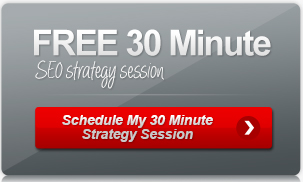Keep only the lessons of regret and lose the rest. So how are split testing and regret similar? Before we can answer that, let’s go through a typical split test scenario in order to set the scene.
The Purpose of A/B Split Testing
Search Engine Optimization is all about sending the right type of visitors to your website. Customers and clients that take optimization to the next level want to make sure the pages displayed are going to convert the qualified traffic. How do they know this? They test and learn, and then test again. The purpose of testing is to determine what pages convert the traffic the best.
A simple A/B split test in an e-commerce example, would be to setup one product page with a video description and one without. You can setup simple A/B split tests for free within Google Website Optimizer, and it will automatically display Page “A” the page with video and Page “B” the page without video at random intervals. Google Website Optimizer will then track the page and see how many visitors converted to the call to action, bounced back, or exited the site. With this simple information you can CONSTANTLY improve your website, and increase your conversion rate, and ultimately grow your business.
Tests Will Fail
Good split testing will tell you more about what you shouldn’t do than it will what you should do, just like regret. It’s useless to keep the baggage, guilt and negativity any regrettable actions may make you feel. The only useful thing to take from regret is the lesson it teaches you. If you learn your lesson and move on from there, you have learned a lot. Same goes for successful split testing. Learning what not to do, is as useful as constantly improving your website, and finding out what works best.
Qualified Traffic + A Tested User Experience + Conversion Rate Optimization = Competitive Advantage
Search Engines have been around for over 15 years. The modern day Search Engine is basically an interactive phone book, and if you have been in business long enough to remember how much you spent on your last Yellow Page ad, you can see the similarities. Although the phone book never had a search feature where a person could actually tell it what they want, and it would give you a list of relevant results. The phone book was alphabetized by category, I guess that makes the alphabet the first commercial search function? The point is modern day search engines have the power to deliver to your website a person looking for your stuff. Understanding who those people are will help you with targeting the right keywords, and creating the best user experience.
A good user experience is not something a business can afford to just guess at. A super competitive business wants to test landing pages, copy, personas, and elements on every important page. The more effort a company puts into understanding audience, and how best to communicate and interact with that audience will remain on top. Where should you start? Ask your current customer what they like and dislike about your website. Take the comments work within your existing team and develop a set of website hypothesis you can test. Monitor the results of the tests, make the changes the tests prove and watch your customer retention rates increase, as well as new customer acquisition.
What do you want a prospect to do once they arrive at your website, or a custom designed landing page? Do you want them to watch a video, make a call, request information, buy a product, etc? Whatever the Call to Action is, you can improve it by understanding your audience, and testing your landing pages. Each landing page should be instrumented with an analytics program (Google Analytics, Omniture, CoreMetrics, etc.), and you can watch the traffic come into the landing page, and figure out where you could be losing them. The more you instrument, monitor and edit, the more prospects you will get all the way through your conversion funnel. These are the details that make the difference between a good year, and the greatest year you have ever had.
It’s not rocket science by any stretch, but it does take great deal of effort and time to setup, test, and tweak your pages for optimum results.
[Test Edit Capabilities – Patti please delete this sentence.]

